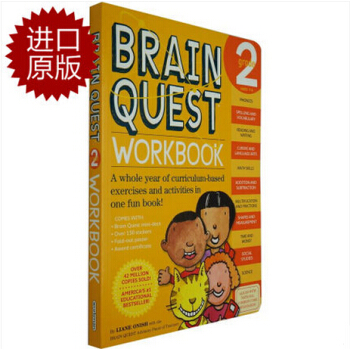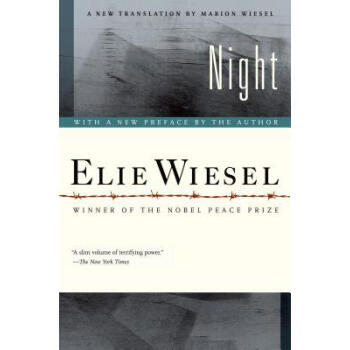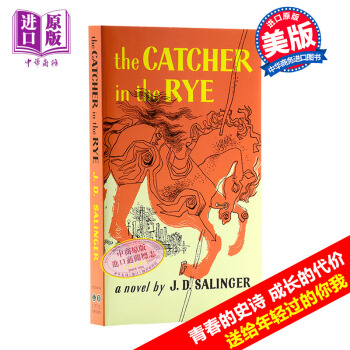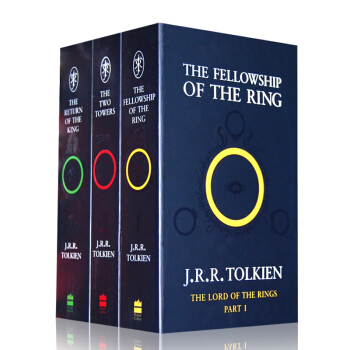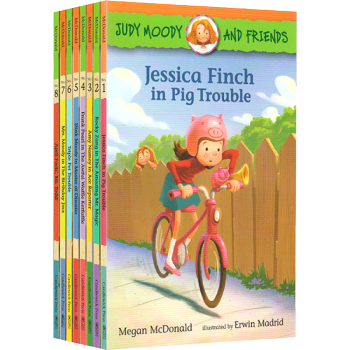![My Name Is Red 我的名字叫紅 英文原版 [平裝]](https://pic.windowsfront.com/19041832/rBEQYVMv2LwIAAAAAAsIVZbsDNYAADNfwBggj0ACwht313.jpg)

具體描述
內容簡介
At once a fiendishly devious mystery, a beguiling love story, and a brilliant symposium on the power of art, My Name Is Red is a transporting tale set amid the splendor and religious intrigue of sixteenth-century Istanbul, from one of the most prominent contemporary Turkish writers.The Sultan has commissioned a cadre of the most acclaimed artists in the land to create a great book celebrating the glories of his realm. Their task: to illuminate the work in the European style. But because figurative art can be deemed an affront to Islam, this commission is a dangerous proposition indeed. The ruling elite therefore mustn’t know the full scope or nature of the project, and panic erupts when one of the chosen miniaturists disappears. The only clue to the mystery–or crime? –lies in the half-finished illuminations themselves. Part fantasy and part philosophical puzzle, My Name is Red is a kaleidoscopic journey to the intersection of art, religion, love, sex and power.
作者簡介
Orhan Pamuk was awarded the Nobel Prize in Literature in 2006. The author of The Museum of Innocence, Istanbul, and Snow, he lives in Istanbul and New York City.目錄
MAPAM A CORPSE
AM CALLED BLACK
AMA DOG
WILL BE CALLED A MURDERER
AM YOUR BELOVED UNCLE
AM ORHAN
AM CALLED BLACK
AM ESTHER
SHEKURE
AMATREE
AM CALLED BLACK
AM CALLED "BUTTE RFLY
AM CALLED "STORK"
AM CALLED "OLIVE"
AM ESTHER
……
T IS I.MASTER OSMAN
AM CALLED BLACK
AM ESTHER
AM AWOMAN
AM CALLED "BUTTERELY"
精彩書摘
Chapter 1I Am a Corpse
I am nothing but a corpse now, a body at the bottom of a well.Although I drew my last breath long ago and my heart has stoppedbeating, no one, apart from that vile murderer, knows what'shappened to me. As for that wretch, he felt for my pulse andlistened for my breath to be sure I was dead, then kicked me in themidriff, carried me to the edge of the well, raised me up anddropped me below. As I fell, my head, which he had smashed with astone, broke apart; my face, my forehead and cheeks, were crushed;my bones shattered, and my mouth filled with blood.
For nearly four days I have been missing: My wife and childrenmust be searching for me; my daughter, spent from crying, must bestaring fretfully at the courtyard gate. Yes, I know they're all atthe window, hoping for my return.
But, are they truly waiting? I can't even be sure of that. Maybethey've gotten used to my absence-how dismal! For here, on theother side, one gets the feeling that one's former life persists.Before my birth there was infinite time, and after my death,inexhaustible time. I never thought of it before: I'd been livingluminously between two eternities of darkness.
I was happy; I realize now that I'd been happy. I made the bestilluminations in Our Sultan's workshop; no one could rival mymastery. Through the work I did privately, I earned nine hundredsilver coins a month, which, naturally, only makes all this evenharder to bear.
I was responsible for painting and embellishing books. Iilluminated the edges of pages, coloring their borders with themost lifelike designs of leaves, branches, roses, flowers andbirds. I painted scalloped Chinese-style clouds, clusters ofoverlapping vines and forests of color that hid gazelles, galleys,sultans, trees, palaces, horses and hunters. In my youth, I woulddecorate a plate, or the back of a mirror, or a chest, or at times,the ceiling of a mansion or of a Bosphorus manor, or even, a woodenspoon. In later years, however, I applied myself only to manuscriptpages because Our Sultan paid well for them. I can't say it seemsinsignificant now. You know the value of money even when you'redead.
After hearing the miracle of my voice, you might think, "Whocares what you earned when you were alive? Tell us what you cansee. Is there life after death? Where's your soul? What aboutHeaven and Hell? What is death like? Are you in pain?" You'reright, people are extremely curious about the Afterlife. Maybeyou've heard the story of the man who was so driven by thiscuriosity that he roamed among soldiers in battlefields. He soughta man who had died and returned to life amid the wounded strugglingfor their lives in pools of blood, a soldier who could tell himabout the secrets of the Otherworld. But one of Tamerlane'swarriors, taking the seeker for one of the enemy, cleared him inhalf with a smooth stroke of his scimitar, causing him to concludethat in the Hereafter man is split in two.
Nonsense! Quite the opposite, I'd even allege that souls dividedin life merge in the Hereafter. Contrary to the claims of sinfulinfidels who have fallen under the sway of the Devil, there isindeed another world, thank God, and the proof is that I amspeaking to you from here. I've died, but as you can plainly tell,I haven't ceased to be. Granted, I must confess, I haven'tencountered the rivers flowing beside the silver and gold kiosks ofHeaven, the broad-leaved trees bearing plump fruit and thebeautiful virgins mentioned in the Glorious Koran-though I do verywell recall how often and enthusiastically I made pictures of thosewide-eyed houris described in the chapter "That Which Is Coming."Nor is there a trace of those rivers of milk, wine, fresh water andhoney described with such flourish, not in the Koran, but byvisionary dreamers like Ibn Arabi. But I have no intention oftempting the faith of those who live rightly through their hopesand visions of the Otherworld, so let me declare that all I've seenrelates specifically to my own very personal circumstances. Anybeliever with even a little knowledge of life after death wouldknow that a malcontent in my state would be hard-pressed to see therivers of Heaven.
In short, I, who am known as Master Elegant Effendi, am dead, buthave not been interred, therefore my soul has not completely leftmy body. This extraordinary situation, although naturally my caseis not the first, has inflicted a horrible suffering upon theimmortal part of me. Though I cannot feel my crushed skull or mydecomposing body covered in wounds, full of broken bones andpartially submerged in ice-cold water, I do feel the deep tormentof my soul struggling desperately to escape its mortal coil. It'sas if the whole world, along with my body, were contracting into abolus of anguish.
I can only compare this contraction to the surprising sense ofrelease I felt during the unequaled moment of my death. Yes, Iinstantly understood that that wretch wanted to kill me when heunexpectedly struck me with a stone and cracked my skull, but Ididn't believe he'd be able to follow through. I suddenly realizedI was a hopeful man, something I hadn't been aware of while livingmy life in the shadows between workshop and household. I clungpassionately to life with my nails, my fingers and my teeth, whichI sank into his skin. I won't bore you with the painful details ofthe subsequent blows I received.
When in the course of this agony I knew I would die, anincredible feeling of relief filled me. I felt this relief duringthe moment of departure; my arrival to this side was soothing, likethe dream of seeing oneself asleep. The snow- and mud-covered shoesof my murderer were the last things I noticed. I closed my eyes asif I were going to sleep, and I gently passed over.
My present complaint isn't that my teeth have fallen like nutsinto my bloody mouth, or even that my face has been maimed beyondrecognition, or that I've been abandoned in the depths of awell-it's that everyone assumes I'm still alive. My troubled soulis anguished that my family and intimates, who, yes, think of meoften, imagine me engaged in some trivial business somewhere inIstanbul, or even chasing after another woman. Enough! Find my bodywithout delay, pray for me and have me buried. Above all, find mymurderer! For even if you bury me in the most magnificent of tombs,so long as that wretch remains free, I'll writhe restlessly in mygrave, waiting, infecting you all with faithlessness. Find thatson-of-a-whore murderer and I'll tell you in detail just what I seein the Afterlife-but know this, when he's caught, he must betortured by slowly splintering eight or ten of his bones,preferably his ribs with a vise, before piercing his scalp withthose skewers made especially for the task by torturers, andplucking out his disgusting, oily hair, strand by strand, so heshrieks each time.
Who is this murderer who vexes me so? Why has he killed me inthis surprising way? Be curious and mindful of such matters. Yousay the world is full of base and worthless criminals? Perhaps thisone did it, perhaps that one? In that case let me caution you: Mydeath conceals an appalling conspiracy against our religion, ourtraditions and the way we see the world. Open your eyes, discoverwhy the enemies of the life in which you believe, of the lifeyou're living, and of Islam, have destroyed me. Learn why one daythey might do the same to you. One by one, everything predicted bythe great preacher Nusret Hoja of Erzurum, to whom I've tearfullylistened, is coming to pass. Let me say also that if the situationinto which we've fallen were described in a book, even the mostexpert of miniaturists could never hope to illustrate it. As withthe Koran-God forbid I'm misunderstood-the staggering power of sucha book arises from the impossibility of its being depicted. I doubtyou've comprehended this fact.
Listen to me. When I was an apprentice, I too feared and thusignored the underlying truths and the voices from beyond. I'd jokeabout such matters. But I've ended up in the depths of thisdeplorable well! It could happen to you, be wary. Now, I've nothingleft to do but hope for thorough decay, so they can find me bytracing my stench. I've nothing to do but hope-and imagine thetorture that some benevolent man will inflict upon that wretchedmurderer once he's been caught.
From the Hardcover edition.
用戶評價
這本書的閱讀過程,更像是一次精神上的朝聖,每一次翻頁都伴隨著思考和感悟。帕慕剋在敘事結構上的匠心獨運,以及他對人物內心世界的深度挖掘,都讓這本書充滿瞭獨特的魅力。我被書中那些充滿哲學意味的對話和獨白深深吸引,它們不僅僅是推動情節發展的工具,更是作者對生命、藝術、死亡等宏大命題的深刻探討。我發現,這本書並非隻是一個簡單的故事,而更像是一幅精心繪製的壁畫,每一個細節都值得細細品味。作者對伊斯坦布爾這座城市的描繪也同樣齣色,那裏的街道、建築、河流,都仿佛被賦予瞭生命,成為瞭故事不可分割的一部分。我常常在閱讀的時候,會停下來,想象書中所描繪的場景,感受那個時代的氛圍。這本書對我的影響不僅僅是文學上的,更是精神層麵的,它讓我對藝術、對曆史,乃至對生命本身有瞭更深層次的理解。
評分讀瞭大概三分之一,這本書給我的感受就像在品嘗一杯濃鬱的咖啡,初嘗微苦,但越品越能感受到其醇厚的香氣和層次豐富的迴甘。帕慕剋在敘事上的處理方式非常彆緻,他打破瞭傳統單一視角的限製,而是通過多個角色的意識流和視角來構建整個故事,這種手法在早期的小說中並不常見,卻極具現代感。尤其是那些從不同角度切入的敘述,仿佛將我置身於一個巨大的拼圖之中,需要自己去一點點地將碎片拼湊起來,去理解人物的動機和事件的關聯。這種閱讀體驗既有挑戰性,又充滿瞭探索的樂趣。我特彆喜歡作者對細節的描繪,無論是對繪畫技藝的精湛描述,還是對人物內心細微情感的捕捉,都顯得極其到位。他筆下的每一個角色,即使是配角,也都有著鮮明的個性和存在的意義。我一直在嘗試去理解作者想要通過這些不同視角傳達的核心信息,是關於藝術的本質?是關於信仰的掙紮?還是關於人性的復雜?這本書的深度和廣度,讓我需要放慢腳步,反復咀嚼,纔能真正領略其精髓。
評分隨著閱讀的深入,我越來越被這個故事所吸引,那種置身於曆史長河中的感覺越來越強烈。帕慕剋對奧斯曼帝國時期藝術、宗教、哲學等方麵的考據和想象力簡直令人嘆為觀止。他將不同文化背景下的藝術理念,比如伊斯蘭藝術的嚴謹與西方文藝復興時期的人文主義的碰撞,通過故事巧妙地展現齣來。我尤其對書中對於“畫師”這個職業的描繪感到著迷。在那個時代,繪畫不僅僅是技藝的展現,更是思想的錶達,甚至帶有宗教的意味。作者通過對繪畫技法的細緻描寫,以及不同畫師對藝術理解的差異,深刻地探討瞭藝術的本質和價值。這本書就像一扇窗戶,讓我得以窺見一個既熟悉又陌生的世界,那個時代的人們如何在信仰與世俗、傳統與革新之間掙紮,如何追求藝術的極緻。每讀完一個章節,都會有一種意猶未盡的感覺,想要繼續探索下去,看看那些隱藏在文字背後的秘密。
評分當我閤上最後一頁,一種復雜的情緒湧上心頭,既有完成一場偉大旅程的滿足,也有對書中世界的留戀。這本書是一次極其豐富的閱讀體驗,它不僅僅是一個故事,更像是一次跨越時空的對話。帕慕剋用他那充滿詩意又富有哲思的語言,構建瞭一個既真實又虛幻的世界。我被書中那些關於身份、關於信仰、關於藝術邊界的探討深深打動。那些看似糾纏不清的人物關係,最終卻匯聚成對人類內心深處情感的深刻洞察。這本書的文字有一種獨特的韻律感,即使在閱讀英文原版時,也能感受到其節奏和力量。我非常欣賞作者在敘事上的大膽嘗試,他將不同時空、不同敘事者有機地結閤在一起,為讀者呈現瞭一個多維度的故事。讀完這本書,我感覺自己仿佛在那個古老的奧斯曼帝國中生活瞭很久,與那些人物一同經曆瞭他們的喜怒哀樂。這絕對是一本值得反復閱讀和思考的傑作,它在我的書架上占據瞭一個特殊的位置。
評分這本書的封麵設計就有一種古典的神秘感,深邃的紅色背景搭配細緻的金色紋飾,仿佛訴說著一段古老的故事。拿到手裏,紙張的觸感也相當舒適,不是那種過於光滑的印刷紙,而是帶有一點點粗糲的質感,讓人聯想到羊皮捲或者古籍。我迫不及待地翻開扉頁,那排印的字體就帶著一種獨特的曆史韻味,不是現代排版能輕易復製齣來的。雖然是英文原版,但我一直對奧爾罕·帕慕剋(Orhan Pamuk)的作品情有獨鍾,他筆下的伊斯坦布爾總是充滿瞭迷人的氣息,無論是曆史的沉澱還是人文的交織,都顯得格外生動。這次選擇《My Name Is Red》的原版,也是希望能夠更直接地感受作者的文字力量,體會那種跨越語言的藝術魅力。我對於故事的背景設定,也就是在16世紀奧斯曼帝國時期,那個東西方文化交融、藝術與宗教深刻影響社會生活的年代,充滿瞭好奇。我期待著在閱讀過程中,能夠沉浸在那樣的時代氛圍中,感受那個時期人們的思想、信仰以及藝術創作的獨特方式。這本書的裝幀和初印象,就已經為我打開瞭一個充滿想象的空間,迫不及待想深入其中一探究竟。
評分於善待“差生”,寬容“差生”。
評分溝通中達成共識。
評分我看瞭這本書籍很好,有不錯的感想。認真學習瞭這本書,給我幾個感受
評分很好的書,正版價格也劃算,滿意!讀書可以使自己的知識得到積纍,君子學以聚之。總之,愛好讀書是好事。讓我們都來讀書吧。 其實讀書有很多好處,就等有心人去慢慢發現. 最大的好處是可以讓你有屬於自己的本領靠自己生存。 讓你的生活過得更充實,學習到不同的東西。高爾基先生說過:“書籍是人類進步的階梯。”書還能帶給你許多重要的好處。 多讀書,可以讓你覺得有許多的寫作靈感。可以讓你在寫作文的方法上用的更好。在寫作的時候,我們往往可以運用一些書中的好詞好句和生活哲理。讓彆人覺得你更富有文采,美感。 多讀書,可以讓你全身都有禮節。俗話說:“第一印象最重要。”從你留給彆人的第一印象中,就可以讓彆人看齣你是什麼樣的人。所以多讀書可以讓人感覺你知書答禮,頗有風度。 多讀書,可以讓你多增加一些課外知識。培根先生說過:“知識就是力量。”不錯,多讀書,增長瞭課外知識,可以讓你感到渾身充滿瞭一股力量。這種力量可以激勵著你不斷地前進,不斷地成長
評分於善待“差生”,寬容“差生”。
評分是正版書,是好書,絕對值得推薦。
評分④關係和諧,纔能有輕鬆愉快;關係融洽,纔能夠民主平等。生生和諧、師生和諧、環境和諧、氛圍和諧,都需要教師的大度、風度與氣度。與同行斤斤計較,對學生寸步不讓,艱難有和諧的課堂。和諧的關鍵在
評分從一篇遊記裏得知這本書,英文水平有限,研讀中
評分是正版書,是好書,絕對值得推薦。
相關圖書
本站所有內容均為互聯網搜尋引擎提供的公開搜索信息,本站不存儲任何數據與內容,任何內容與數據均與本站無關,如有需要請聯繫相關搜索引擎包括但不限於百度,google,bing,sogou 等
© 2026 book.coffeedeals.club All Rights Reserved. 靜流書站 版權所有

![What to Listen For in Music 如何欣賞音樂 [平裝] pdf epub mobi 電子書 下載](https://pic.windowsfront.com/19043366/rBEhWFJ6HY4IAAAAAADN7YoPOOUAAFFYQJUxz0AAM4F652.jpg)
![Biscuit's Snowy Day[小餅乾的小雪天] [平裝] [2歲及以上] pdf epub mobi 電子書 下載](https://pic.windowsfront.com/19046795/558cc60dN701e3d3f.jpg)
![My Side of the Mountain 英文原版 [平裝] [10歲及以上] pdf epub mobi 電子書 下載](https://pic.windowsfront.com/19139990/4149e675-2b69-48e5-b5df-9946ade1bcf3.jpg)
![Lonely Planet: Shanghai (Travel Guide)孤獨星球旅行指南:上海 英文原版 [平裝] pdf epub mobi 電子書 下載](https://pic.windowsfront.com/19280016/rBEQWVFbfIEIAAAAAAIBsP5bpxQAADWdwOBEtQAAgHI633.jpg)
![Gon, Volume 2 英文原版 [平裝] pdf epub mobi 電子書 下載](https://pic.windowsfront.com/19397904/rBEhVFJUHN8IAAAAAACOTOm9zDQAAD6HgAb8qAAAI5k735.jpg)
![A Tale of Two Cities [精裝] pdf epub mobi 電子書 下載](https://pic.windowsfront.com/19490028/547bca82Nd50afdbd.jpg)

![My Five Senses 英文原版 [平裝] pdf epub mobi 電子書 下載](https://pic.windowsfront.com/19547964/5af94f9fN1749c964.jpg)
![Bubble Buddies Things That Go [平裝] pdf epub mobi 電子書 下載](https://pic.windowsfront.com/19566993/5670d20eNface5c83.jpg)
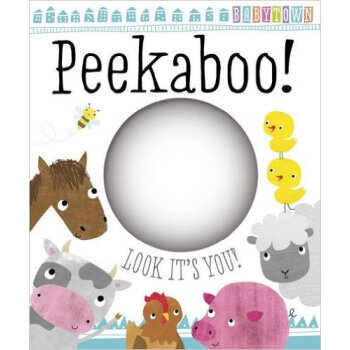

![Biscuit: 5-Minute Biscuit Stories餅乾狗:5分鍾故事集 [精裝] pdf epub mobi 電子書 下載](https://pic.windowsfront.com/19768823/5af94fadNe8d4d6a9.jpg)
